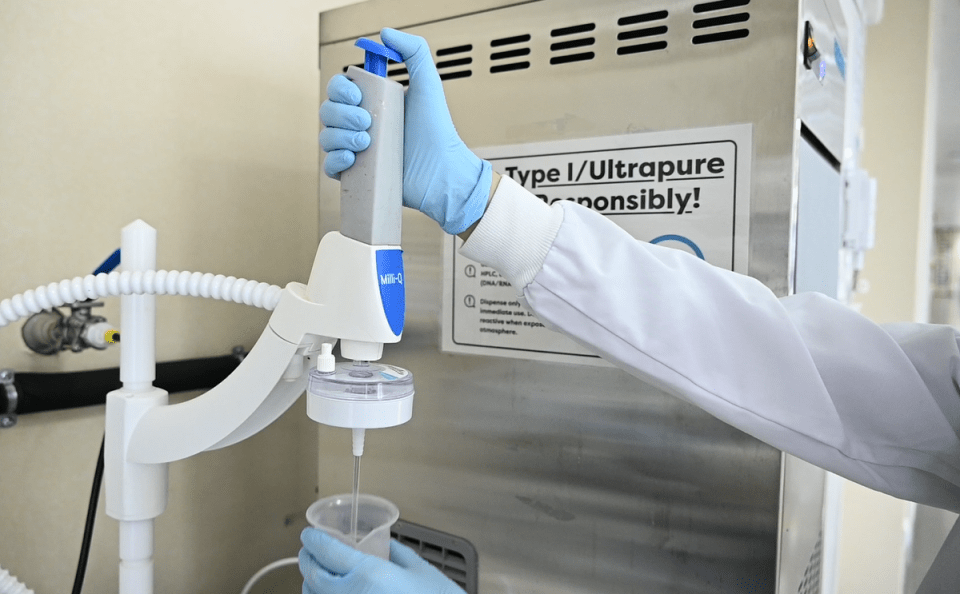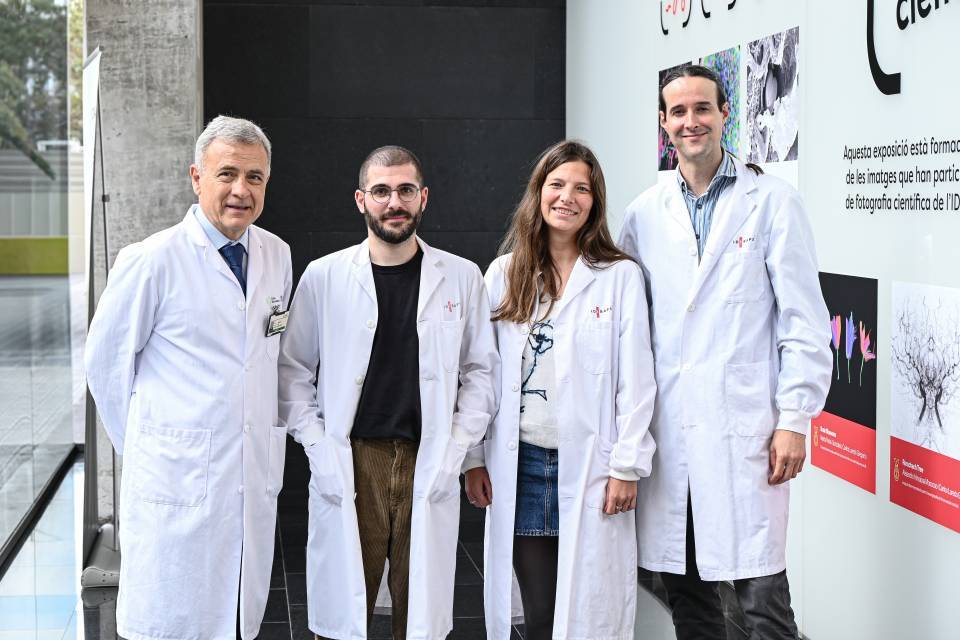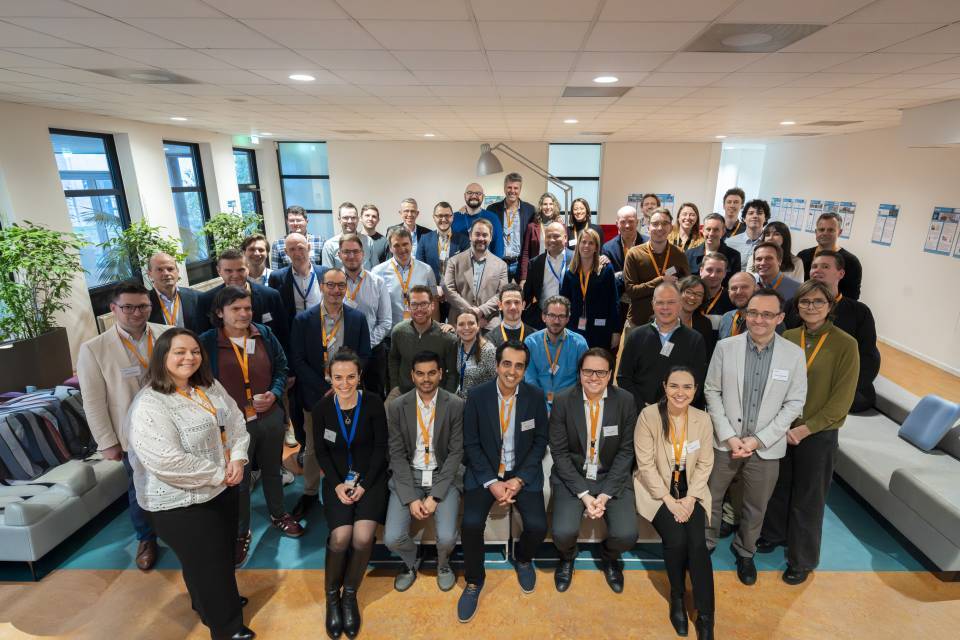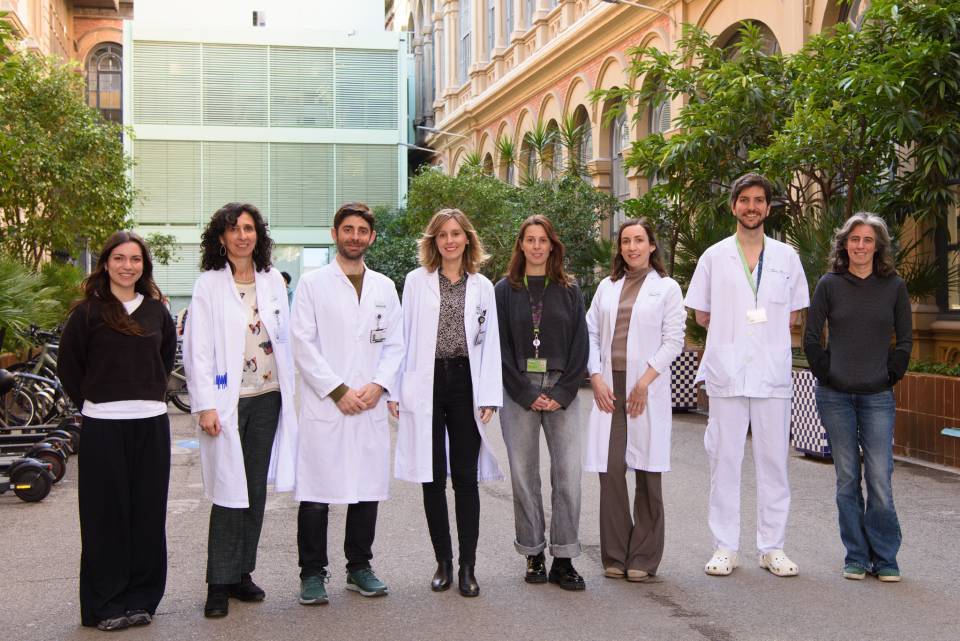To reduce these figures, during the second half of last year, several improvements were implemented in water management, such as new signage detailing the different types of water available at the taps in the Esther Koplowitz Centre (CEK), the IDIBAPS headquarters; the installation of new aerators on the running water taps in the toilets, the regulation of the water discharge from the CEK toilets, and the replacement of the pure water equipment at the CEK with more efficient models. You can find details of the measures by clicking here.
These actions have borne fruit, since water consumption between October 2024 and March 2025 was significantly lower than it was during the same period the previous year. In most months, the consumption was reduced by around 25%. The only month in which no decrease was observed was February 2025, as a result of incidents that distorted consumption. Overall, consumption during the six months analysed fell by 21%.
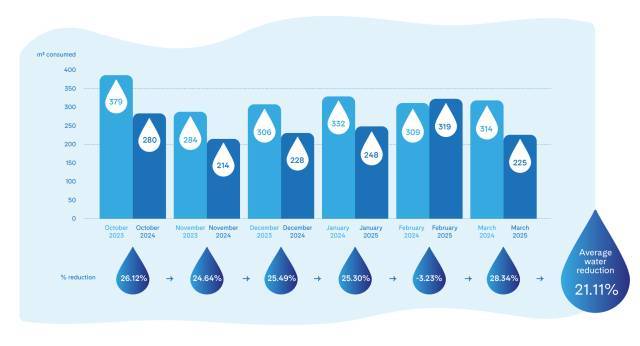
The Sustainability Committee’s initiatives went beyond water and included actions in the areas of energy, wood, printing, waste, etc. Among other things, the Committee has worked on a Best Practices Manual, which includes actions that can also be applied in laboratories and offices to reduce the environmental impact of our work and personal activities. It is a living document that is updated periodically. The Committee has also drawn up the IDIBAPS Environmental Sustainability Strategy and the 2025-2026 Action Plan.
In addition, IDIBAPS has implemented other measures to improve the sustainability of the research institute. Here are some examples:
- Installation of reusable containers for Type III (biological) waste in the CEK building, to reduce the use of single-use plastic containers.
- Use of reusable blue lab coats in the culture rooms to avoid single-use coats.
- Collection of aluminium coffee capsules and delivery to recycling points.
- Collection of plastic caps for sustainability and solitary campaigns.
- Collection and cleaning of Styrofoam and ice packs from products received daily for delivery to a distribution company for reuse.
- Use of timers on laboratory equipment to avoid leaving it on unnecessarily throughout the night (microscopes, water baths, centrifuges, etc.).
- Campaign to increase the temperature of ultra-low temperature freezers from -75-80°C to -70°C.
- Use of recycled paper and default black and white double-sided printing in institutional printers.
- Collection of organic waste in the CEK canteen.
- Use of glass water bottles instead of plastic ones for catering services organized at IDBAPS.
- Centralization of supplier deliveries to reduce the number of journeys by delivery drivers.
- Separate collection of sharps and freezer boxes for reuse.
Similarly, on 5 June the first environmental sustainability day was held at the Campus Clínic, a joint initiative organized by the Hospital Clínic Barcelona, IDIBAPS, ISGlobal and the University of Barcelona, which aimed to highlight the direct relationship between human health and the health of the planet, and to reinforce the commitment of institutions to move towards a more sustainable, equitable and resilient healthcare system.
If you would like to collaborate with the Sustainability Committee, and/or submit new proposals, please contact: sustainability@recerca.clinic.cat

